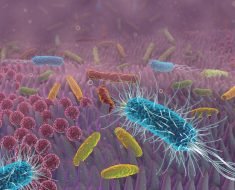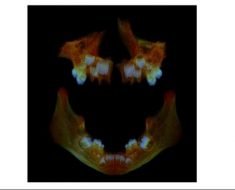Dr Dawn Harper on signs of vitamin B12 and vitamin D deficiency
We use your sign-up to provide content in ways you’ve consented to and to improve our understanding of you. This may include adverts from us and 3rd parties based on our understanding. You can unsubscribe at any time. More info
Vitamin B12 plays an essential role in red blood cell formation, cell metabolism, nerve function and the production of DNA. It can be found naturally in many food sources, however some people who do not get enough B12 end up developing a deficiency.
A B12 deficiency can lead to “deficiency anaemia”.
According to the NHS: “Vitamin B12 or folate deficiency anaemia can cause a wide range of symptoms.
“These usually develop gradually but can worsen if the condition goes untreated.
“Anaemia is where you have fewer red blood cells than normal or you have an abnormally low amount of a substance called haemoglobin in each red blood cell.”

The symptoms of vitamin B12 deficiency anaemia can vary slightly from anaemia which comes about as the result of other causes.
Some of the main symptoms of vitamin B12 anaemia can impact your mouth and may feel painful or “sore”.
According to the NHS, these can include a “sore and red” tongue or mouth ulcers.
Mouth ulcers can form on your tongue and gums.
Though the sores usually clear up on their own, if you think they could be associated with a vitamin B12 deficiency it is important to visit your GP.
DON’T MISS
Diabetes: The snack that lowers blood sugar 45 minutes after eating [REPORT]
Dementia: Popular sandwich could increase the risk of brain disease [REVEALED]
Omicron: Five symptoms ‘particularly’ showing up in the fully jabbed [INSIGHT]
What are the other symptoms of a vitamin B12 deficiency?
People may experience multiple symptoms of deficiency anaemia at once.
Some of the key symptoms include:
- A pale yellow tinge to your skin
- Pins and needles
- Changes in the way that you walk and move around
- Disturbed vision
- Irritability
- Depression
- Changes in the way you think, feel and behave
- A decline in your mental abilities, such as memory, understanding and judgement

How is vitamin B12 deficiency treated?
Vitamin B12 deficiency anaemia is usually treated with injections of vitamin B12.
Though there are two different options, hydroxocobalamin and cyanocobalamin, hydroxocobalamin is usually recommended as it stays in the body for longer.
You will likely have these injections every other day for two weeks until your symptoms improve.
After this point, your treatment will depend on the cause of your B12 deficiency.
If it is related to diet, you may be encouraged to eat a specific diet plan.
The NHS states: “People who find it difficult to get enough vitamin B12 in their diets, such as those following a vegan diet, may need vitamin B12 tablets for life.”

How can you get more vitamin B12 in your diet?
Vitamin B12 naturally occurs in a number of foods, and upping your intake of these can help meet your daily recommended amount of the vitamin.
Foods that contain high levels of vitamin B12 include:
- Meat
- Fish
- Milk
- Cheese
- Eggs
- Some fortified breakfast cereals
Source: Read Full Article





